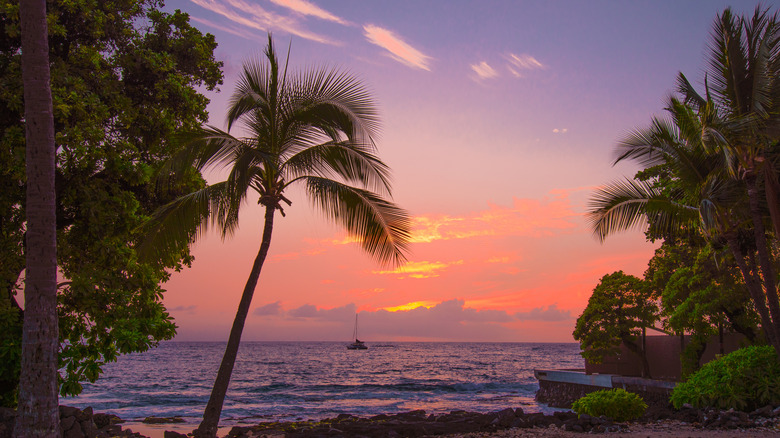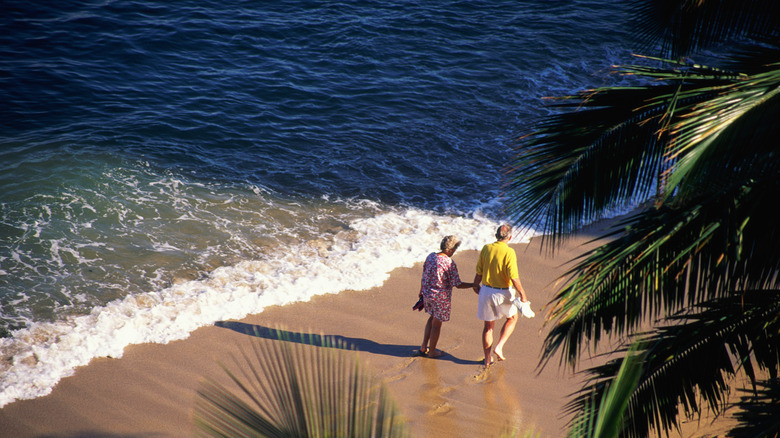One Major Downside Will Make You Think Twice Before Retiring In Hawaii
The allure of retirement is one of those things that many of us daydream about as we look out the office window on a Monday afternoon. Finally making it to the age where you qualify for Social Security and have enough money saved up to put your working days behind you is no small feat to accomplish. Seeing as the CDC pins the average life expectancy of Americans at 77.5 years, and per the Social Security Administration the earliest age to receive retirement benefits is 62, the majority of us will indeed one day be able to retire.
That being said, maybe all that daydreaming about the day when you will no longer have to work isn't that much of a waste of time after all. However, picking the right place to retire when that day does finally come is certainly no small task to accomplish. While many people choose to retire to someplace warm like Florida, other people are instead trying to take their tropical retirement dream to a whole other level by moving to Hawaii to ride out the rest of their years. However, if you are amongst that group of potential Hawaii retirees, it's important to consider the cons that come with retiring among the tropical islands before making any final commitments. That being said, let's take a look at some of the major downsides that will make you think twice before retiring in Hawaii.
The benefits of retiring in Hawaii
It's no surprise that some set their sights on Hawaii as the ideal place to set up shop for retirement. After all, the state is a tropical paradise that is a wonderful place to live if you're looking for an escape from the cold-weather that consistently berates the northern United States. Outside of the climate, another bonus to retiring in the tropical islands is that Social Security benefits are not taxed there. However, Hawaii does tax things like retirement savings accounts, unlike some other places.
That being said, average winter temperatures of 78 degrees Fahrenheit and beautiful beaches shouldn't be the only factors you consider when pondering retirement in Hawaii. While the climate and environment at any of the Hawaiian islands is certainly appealing, it's important to weigh these against any number of the potential downsides to retiring there. So without further ado, let's take a look at some of the potential cons of retirement in Hawaii.
Why you shouldn't retire in Hawaii
The first and most outstanding factor people need to consider when deciding on whether or not to retire in Hawaii is of course the cost of living there. According to a report done by the Missouri Economic Research and Information Center, as of Q3 2024, Hawaii is the state with the highest cost of living in the entire country. Studies have shown that in order to live comfortably in the capital of Hawaii, Honolulu, you would need to have an annual income of somewhere in the range of $200,000 to be comfortable. That is a considerable amount of money for your average retiree to be spending on a yearly basis.
Another factor to consider when deciding on whether or not to retire in Hawaii is the remoteness of the state. Being far away from family and friends can certainly become an issue for retirees, seeing as Hawaii is not exactly the most convenient U.S. state to visit. However, outside of these issues, ultimately the decision to retire in Hawaii is up to individual preference. If you're not worried about being able to see your loved ones often, are retiring with a significant amount of money, and are willing to sacrifice affordability for the beautiful climate Hawaii possesses, then the tropical paradise may just be the best place to call home for the rest of your days.


